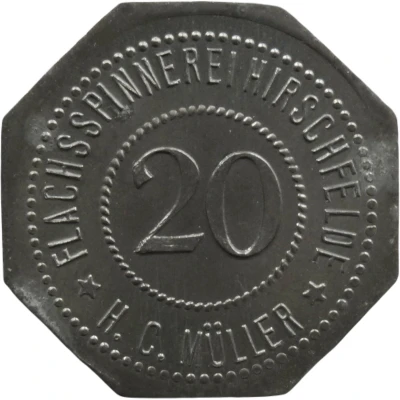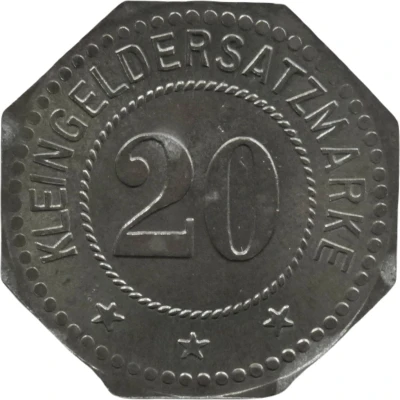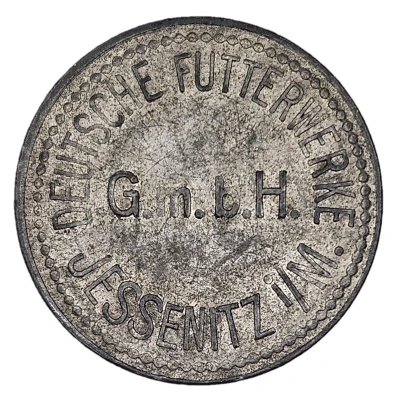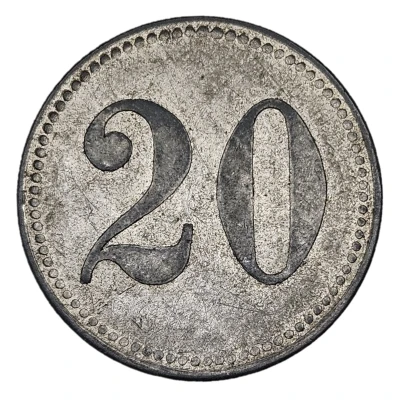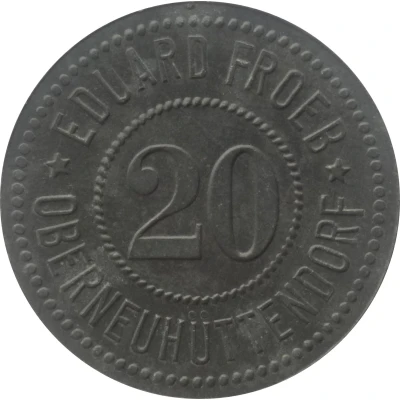
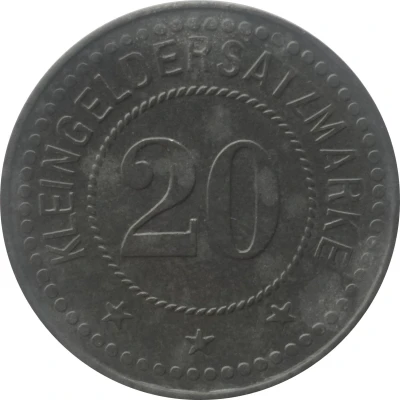

© Willem63 (CC BY-NC-SA)
20 Pfennigs - Oberneuhüttendorf (Eduard Froeb) ND
| Zinc | 2.7 g | 23.0 mm |
| Issuer | German notgeld (Germany) |
|---|---|
| Type | Standard circulation coin |
| Value | 20 Pfennigs (20 Pfennige) (0.20) |
| Currency | Mark (1914-1924) |
| Composition | Zinc |
| Weight | 2.7 g |
| Diameter | 23.0 mm |
| Thickness | 1.2 mm |
| Shape | Round |
| Technique | Milled |
| Orientation | Medal alignment ↑↑ |
| Demonetized | Yes |
| Updated | 2024-10-04 |
| Numista | N#349433 |
|---|---|
| Rarity index | 97% |
Reverse
Pearl rim, legend surrounding rope circle with denomination centered
Script: Latin
Lettering:
KLEINGELDERSATZMARKE
20
★ ★ ★
Edge
Plain
Comment
Menzel: BBBFa.: Kolonialwarenhandlung
Interesting fact
One interesting fact about this coin is that it was part of a series of emergency currency issued during the hyperinflation period in Germany in the 1920s. The coin was made of zinc, which was a cheaper alternative to traditional metals like copper or silver, and it was designed to be easily identifiable and difficult to counterfeit. The coin's design featured a unique combination of letters and numbers, as well as a image of a tree, which was meant to symbolize stability and growth. Despite its humble appearance, this coin played an important role in the everyday lives of Germans during a time of economic turmoil.
